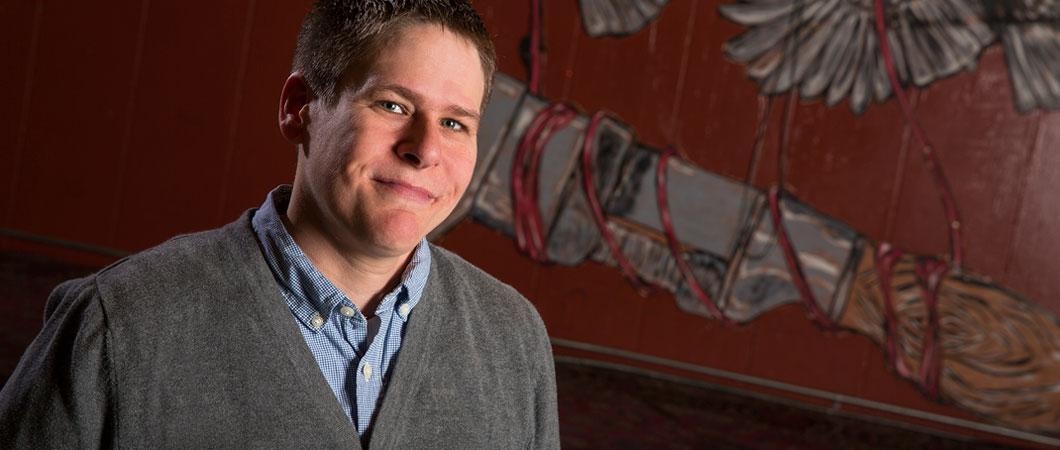Graduate Student Spotlight: Avery Edenfield

Fifth-year graduate student in Professional and Technical Writing
Dissertation: Collective Management in a Cooperative: Problematizing Productivity and Power
Update: Congratulations, Avery! He is now an assistant professor in the Department of English at Utah State University.
My dissertation examines communication practices in a cooperatively owned, collectively managed company, the Riverwest Public House Cooperative here in Milwaukee. The Public House was one of the first cooperatively owned venues in the United States. It is collectively run by workers with oversight by an elected Board of Directors.
Using actor-network theory, I’m analyzing the rhetorical construction of the Public House over time. One area in particular I’ve focused on is the formation and dissolution of the founding network, the network in which the organization’s bylaws were originally designed. I designed a qualitative research project that includes observations, interviews, and textual analysis over a year with participants that included past and present Directors and employees.
One complication I examine involves the production of workplace texts like employee handbooks, incident reports, signs, and codes of conduct. These are not only collaboratively produced, but also collaboratively enforced. Over time, however, the meanings of such documents can shift, and that can affect the community in ways other than originally imagined.
For example, Chapter 185 of Wisconsin State Statue dictates that after bylaws are adopted by a temporary board, they “can only be changed by members unless the members adopt a bylaw which permits the board to make and amend specified bylaws” (185.07). Currently, the Public House doesn’t have such a stipulation, which makes bylaws very difficult to alter. The existing Board must interpret the current bylaws, written four years ago, to apply to present business needs. My dissertation, in part, looks at the interpretation process of the Public House bylaws in light of a recent crisis and the events that followed.
I hope to expand this research to examine communication in other alternative economic models, especially in light of the growth of the sharing economy, including peer-to-peer companies like Uber and Airbnb. In the classroom, my research has made me more interested in open-source materials, which can thought of as a more informal cooperative venture. My technical writing courses feature an open source documentation project, and I’m excited about how this research can inform collaborative learning in the classroom.